Yeah! Raw honeycomb can be eaten. This post covers everything about how the honeycomb is harvested and eaten and the various techniques used to use it. Now let’s start!
A Traditional Form of Eating Honey
Nowadays, modern beekeeping techniques and equipment allow the beekeeper to extract the honey from the comb, where bees store honey.
But traditionally, the honey was eaten straight from the comb. This is called comb honey, and instead of the liquid honey, you will be chewing the comb honey as it was chewing gum.
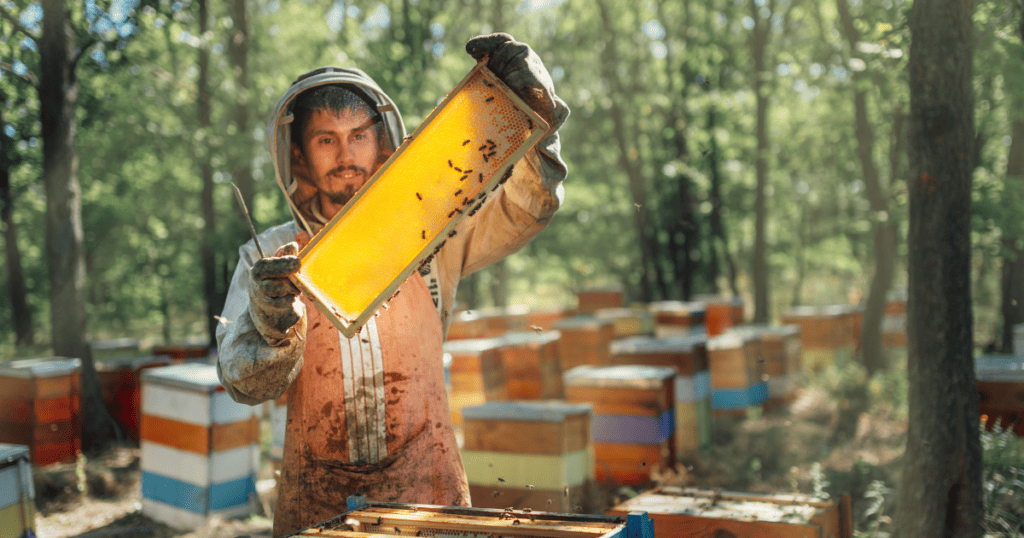
Potential Benefits and Risks of Eating Honeycomb
You will get the same benefits when you eat raw honeycomb as liquid honey.
There are no risks associated with swallowing beeswax as honeycomb is edible. More on that below.
Is honeycomb edible?
Is it possible to eat raw beeswax? Yes, it is.
Natural honeycomb is entirely edible, although its texture isn’t for everyone.
There is very little nutritional value in ingesting beeswax, but if you swallow it, there are no risks.
Most of the time, you eat honeycomb by chewing on it to extract the raw honey and then spit out the beeswax.
It is like chewing on very sweet chewing gum.
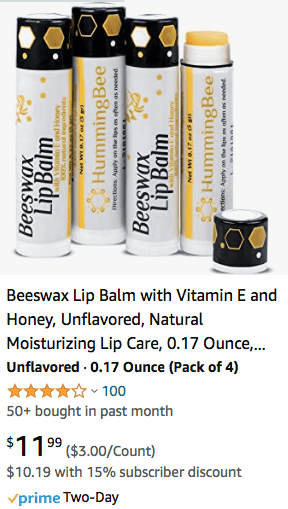
Raw Honeycomb is Harder to Find
Fresh honeycomb is harder to find than honey because beekeepers prefer to extract and sell the honey in liquid form.
Also, consumers regularly eating honeycomb are rare as parents or grandparents probably passed it down because they kept honeybees.
It is more of a specialty food as it is less practical than liquid honey.
How To Harvest Raw Honeycomb?
Beekeepers harvest raw honeycomb in two ways.
The first one is instead of extracting the honey from the comb; it is sectioned by cutting it into squares or circles and packed.
The second way is to use specialized equipment that already has the wanted honeycomb shape so bees can build wax comb and store honey in those sections, so later, when the honey is ripe, the beekeeper only removes those sections and pack the honeycomb.

What are honeycombs made of?
Honeycomb contains the wax derived from glands on worker bees’ abdomens.
Honeybees secrete scales of beeswax that they mold into a comb, where they store resources such as nectar and pollen and where new bees are raised.
Read this post on beeswax to learn more about this product.

What is it like to eat honeycomb?
Honeycomb is edible and delicious. Think of a natural chewing gum where you can eat honey straight from the source.
Now, you might be asking, can you eat beeswax? You can, but you do not need to, as it has no health benefits.
To eat the honeycomb, cut a small chunk of the raw honeycomb and chew until you have extracted all the honey, then spit out the beeswax.

Is raw honeycomb better than raw honey?
It is not better; it is just different.
Honey bees store the honey in the wax cells, and the whole cell ensemble makes a natural honeycomb.
When you eat honeycomb, you will mostly get honey, but you can also get some pollen that honey bees store in these wax cells.

Do we digest beeswax?
No, we do not.
Beeswax is composed of several indigestible substances. If you swallow it, it will just go through you without providing any health benefits, but it won´t be bad for you if you ingest some raw beeswax.
Is honeycomb vegan?
Even though honey comes from transforming flower nectar into raw honey by honey bees inside the hive and is not a direct product of the bees, it is still considered by veganism as an animal product.
The same goes for other bee products like pollen, propolis, and royal jelly.

What are the health benefits of raw honey and raw honeycomb?
Honey has antibacterial properties that stem from raw honey naturally containing hydrogen peroxide, an antiseptic.
Manuka honey, besides the substance mentioned above, also contains a powerful bio-compound called Methylglyoxal.
That compound, together with hydrogen peroxide, makes raw honey antimicrobial.
Read this post on honey to learn more about this product.

How to eat honey?
Raw honey can be used in a wide variety of ways.
You can use it instead of sugar to sweeten beverages like coffee, tea, fruit juices, and smoothies.
Also, it is excellent when spread over warm bread, blue cheese, English muffins, crackers, and even charcuterie boards.
It can also be incorporated into ice cream, protein and granola bars, and baking goods.
The uses are endless.
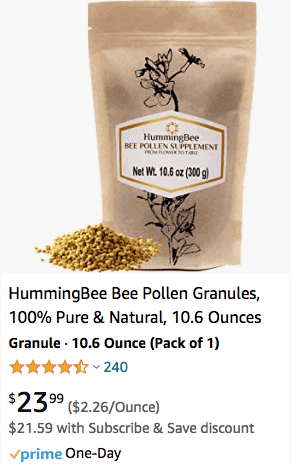
Lip Balm For Men To Help Protect Your Lips
Lip skin is much thinner than the rest of your skin; that is true for…
HONEY, ALL ABOUT IT
A Bit of History Honey and other bee products such as beeswax, royal jelly, and…
Bee Pollen health benefits. Part 2.
So here we continue where we left off in Part 1 of Bee Pollen Health…
Chapped lips? Causes and treatments for dry, cracked lips.
What are sore chapped lips a symptom of? Severely chapped lips may have different causes….
Bee Pollen Benefits
If you look around the internet, you’ll find a significant amount of information about bee…
Bee Pollen for Dogs, does it have health benefits?
Bee pollen is an excellent source of nutrients for humans and for pets like dogs,…
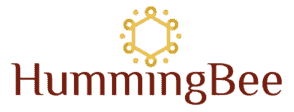

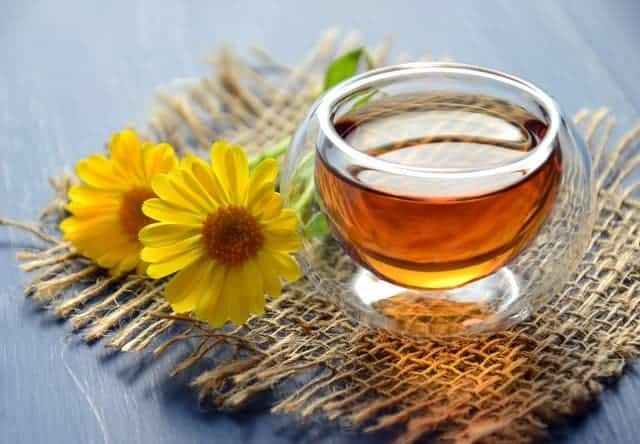
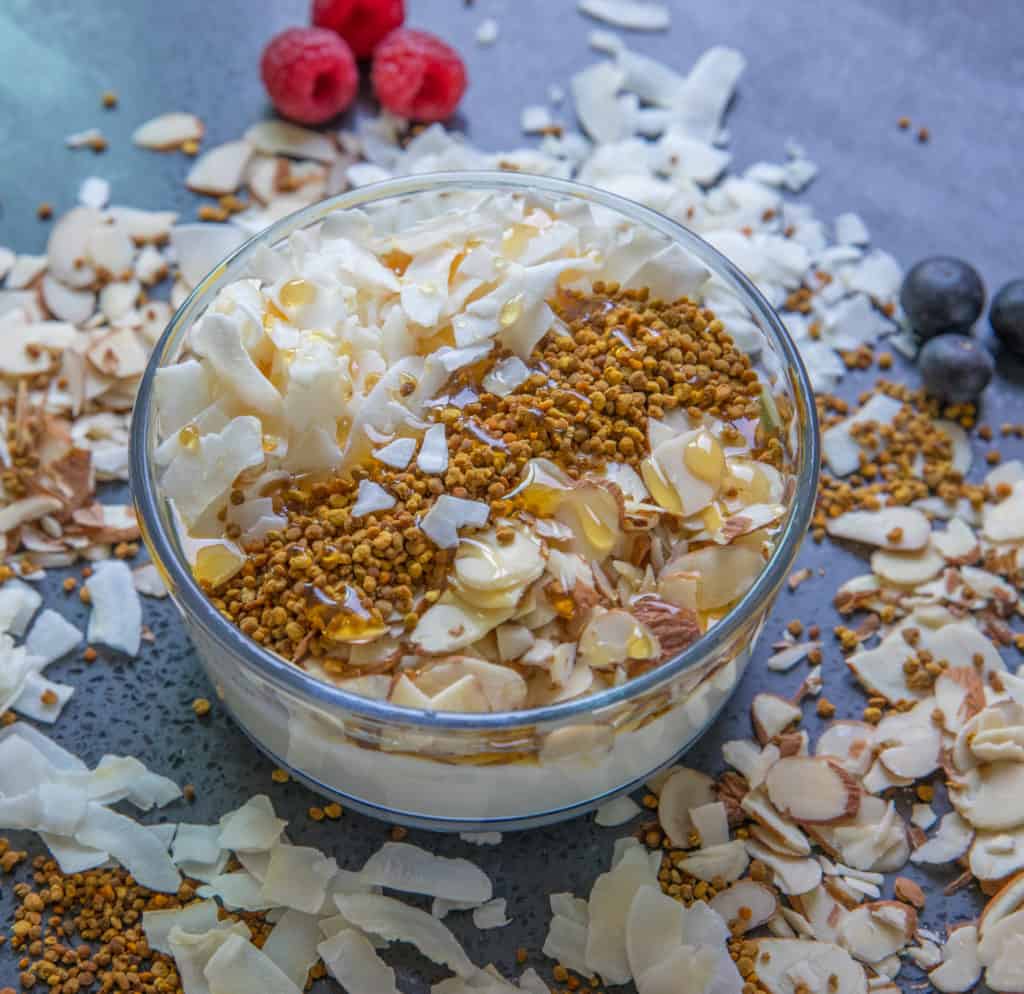
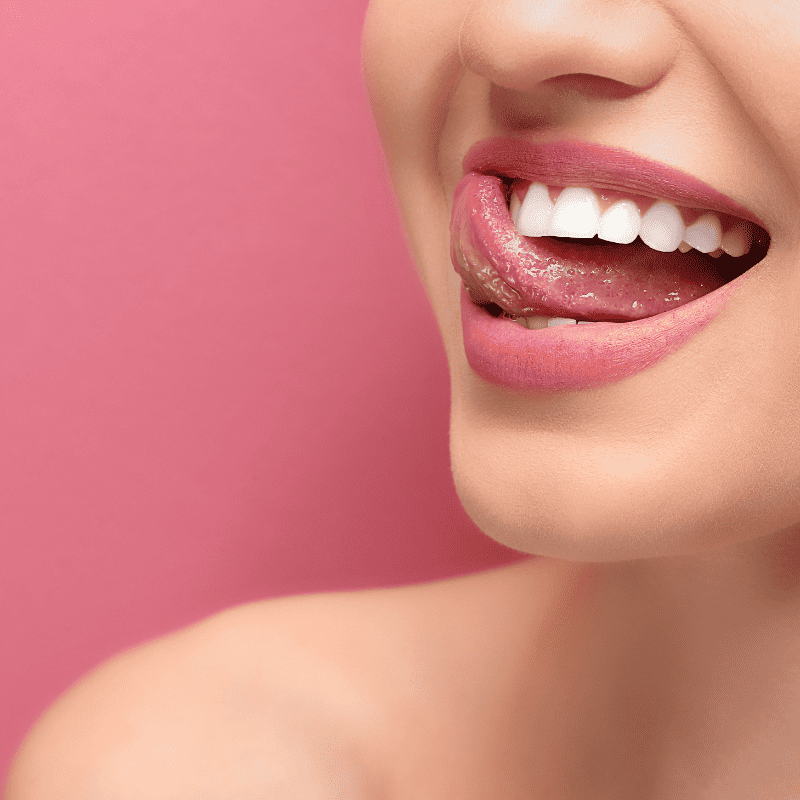
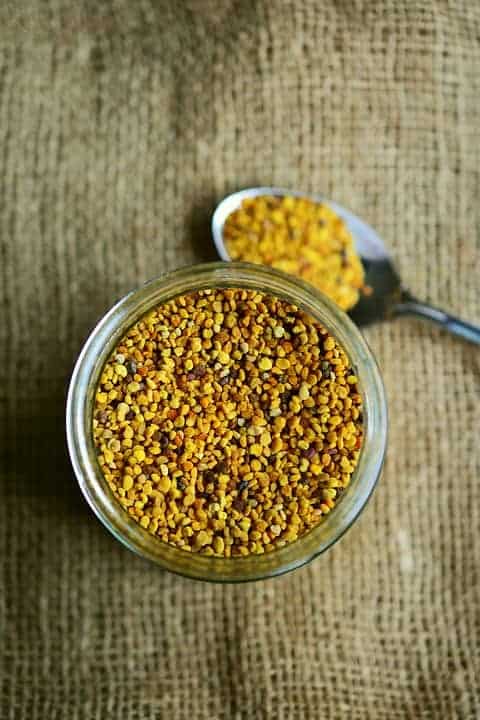
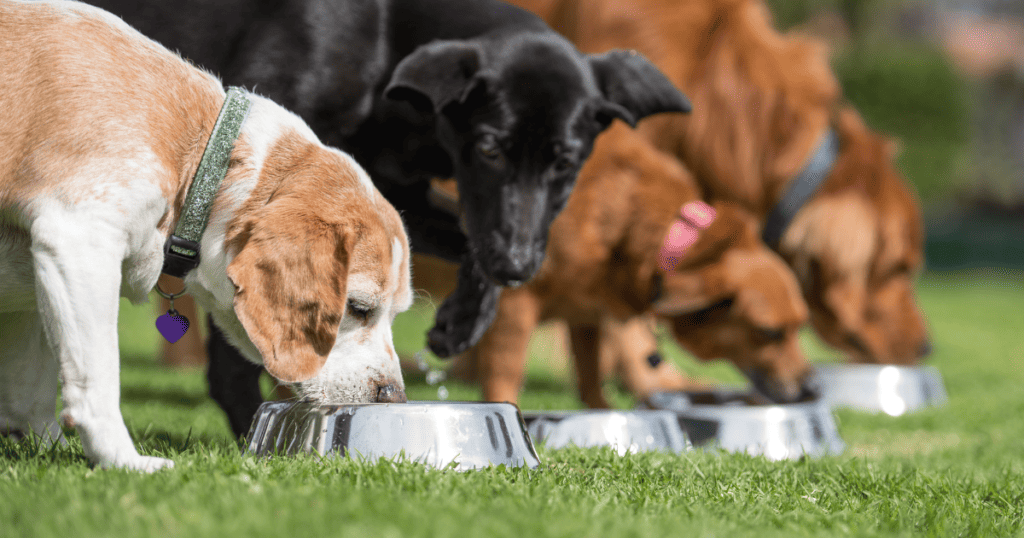
Pingback: HONEY, ALL ABOUT IT - HummingBee